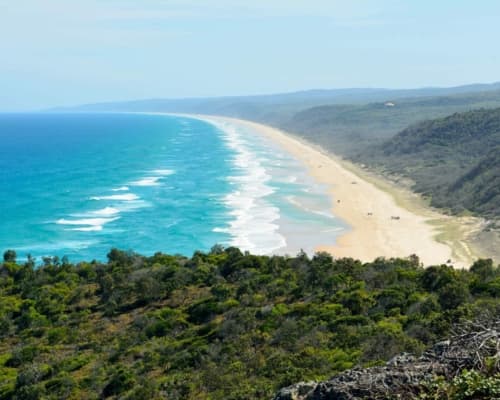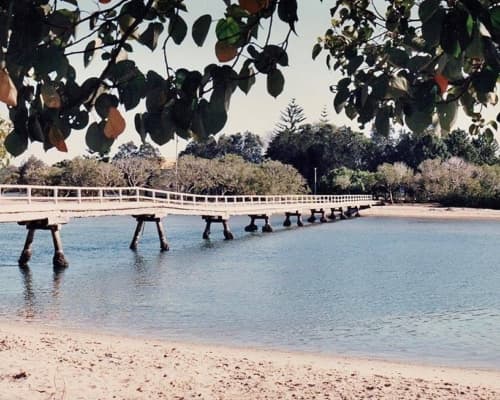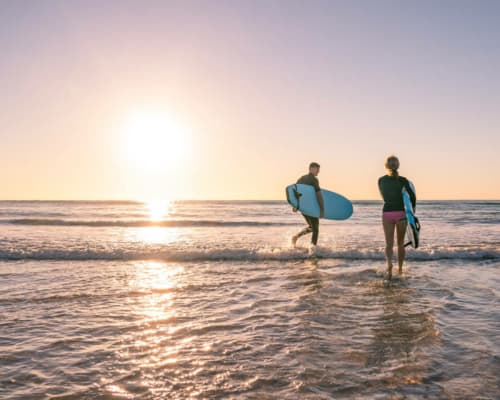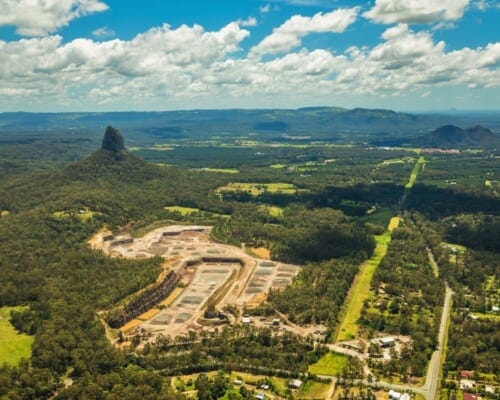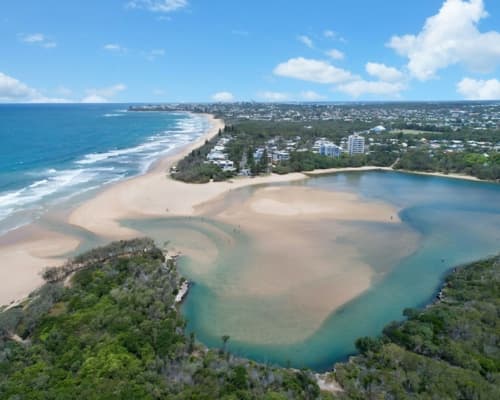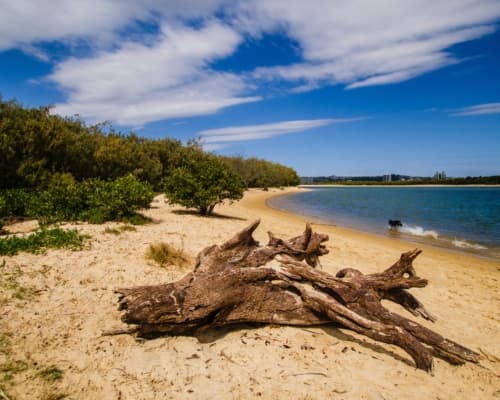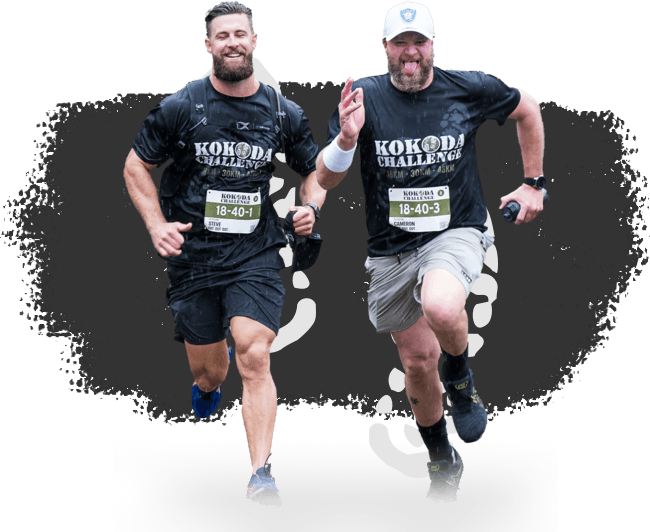
They say what doesn’t kill you makes you stronger, and the Kokoda Challenge might be your ultimate test.
So just how hard is the Kokoda Challenge – and will it really give you a run for your money? Well, you’ll tread 96 kilometres of rugged terrain, face steep ascents, and descend treacherous slopes.
But don’t be daunted; while this race tests your physical limits and teamwork skills, it’s also an unforgettable adventure that supports a remarkable cause.
So strap in, we’re going to breakdown just how tough the Kokoda Challenge really is (and how you can get through it).
The Rigours of the Kokoda Challenge
You’ll quickly grasp that the Kokoda Challenge isn’t a walk in the park like other things to do on the Sunshine Coast, as it’s recognised as one of Australia’s toughest courses, with its gruelling 96km distance and rugged terrain.
This event will push you to your physical and mental limits like never before. It’s a test of endurance, strength, and determination that requires advanced training to conquer.
The course features steep climbs that will make your muscles burn with exertion and uneven terrain that demands careful navigation. Each step is an exercise in resilience as you battle fatigue, discomfort, and perhaps even doubt.
And while all this seems overwhelming, it’s for an extremely good cause. This challenge is designed not just to test you but also to evoke the spirit of courage shown by our veterans on the Kokoda Trail during WWII.
Training for a demanding event like this should be approached strategically. You need to build up your stamina for those long distances while developing strength for those uphill battles, while mental preparation is equally crucial; you’ll need to foster a mindset ready to endure hardship and persevere when things get tough.
In essence, tackling the Kokoda Challenge means stepping out of your comfort zone into a world where only grit and tenacity reign supreme.
So here’s how to juggle it all:
Training Requirements for the Kokoda’s Long Routes
Training for the long routes requires months of preparation to build up your fitness and endurance. The Kokoda Challenge is no walk in the park; it’s a physical challenge that demands strength, agility, and resilience, as we’ve noted.
Start by gradually increasing your workout intensity, focusing on cardio exercises like running and cycling. Remember, you’re training for an endurance event, not a sprint.
Weighted pack training is also essential. It simulates the conditions you’ll face during this gruelling event, helping your body adapt to carrying heavy loads over extended periods. Start with lighter weights and progressively add more as your fitness level improves.
But it’s not all about physicality; mental toughness plays an equally important role. Practising mindfulness techniques can help control anxiety levels and maintain focus during challenging sections of the route.
Last but not least, don’t overlook recovery phases in your training regimen. Rest days are crucial for muscle repair and rejuvenation. Without them, you run the risk of injury, which may jeopardise your participation in this epic adventure.
Remember to train smart for the Kokoda Challenge – this journey is as much about endurance as it is about self-discovery.
The Physical and Mental Struggles on the Trail
It’s not just about the physical exertion; pushing through mental barriers is a significant part of the journey as well. If you’re wondering how hard the The Kokoda Challenge is, remember it’s known for its steep hills and slippery terrain, testing your limits both physically and mentally.
In some cases, you might find your mind will play tricks on you – telling you to stop when your body can go further. The key is to keep pushing, keep moving forward no matter how difficult it gets.
Remember why you took up this challenge – for the experience, for personal growth or maybe to prove something to yourself. And for every ‘struggle’ there is, there’s always a solution:
| Struggle | Solution |
| Physical Struggles | Regular exercise, balanced diet and enough rest are essential. Train your body to withstand physical challenges. |
| Mental Struggles | Mindfulness and meditation can help with mental struggles. Therapy or counselling can also be beneficial. |
| Steep Hills | Practice, practice, and practice. The more you climb, the better you get. |
| Self-Doubt | Positive affirmations and self-belief can help overcome self-doubt. Surround yourself with positive influences. |
| Slippery Terrain | Proper gear and practice can help navigate slippery terrains. |
| Mental Fatigue | Regular breaks, proper sleep, and hobbies can help manage mental fatigue. |
| Exhausting Distance | Gradual increase in stamina and endurance through regular exercise and training can help manage exhausting distances. |
| Fear of Failure | Acceptance of failure as a part of the process and learning from mistakes can help overcome fear of failure. |
| Heat and Humidity | Staying hydrated, wearing appropriate clothing, and acclimatizing to the conditions can help manage heat and humidity. |
| Overcoming Pain | Seeking medical help when required, regular exercise and a healthy diet can help manage pain. |
| Heavy Rain | Proper gear can help manage heavy rain. Plan your activities according to the weather. |
| Emotional Exhaustion | Regular breaks, stress management techniques, hobbies, and spending time with loved ones can help manage emotional exhaustion. |
Essential Gear and Strategies for Kokoda’s Demands
Navigating the rugged terrain requires careful selection of gear and strategic planning. Your success in the Kokoda Challenge is directly influenced by the choices you make before stepping foot on the Kokoda Trail.
Essential gear means more than just sturdy boots and a comfortable backpack. Consider equipment that meets your personal needs, like walking poles for balance or a high-quality headlamp for night travel. It’s also crucial to invest in breathable clothing to keep you dry and prevent chafing.
Your physical health isn’t all about strength and endurance, either. Foot care should be top of mind when preparing for Kokoda’s demands. Invest in moisture-wicking socks, tape any prone-to-blister areas, and have a footcare kit ready for immediate treatment at signs of discomfort.
Hydration strategies are paramount too; finding an easily accessible hydration system will ensure you stay hydrated without disrupting your pace.
Nutrition-wise, pack lightweight but high-energy snacks. Try out different foods during training to see what sits best with your stomach under strenuous conditions.
The Triumph of Overcoming the Kokoda Challenge
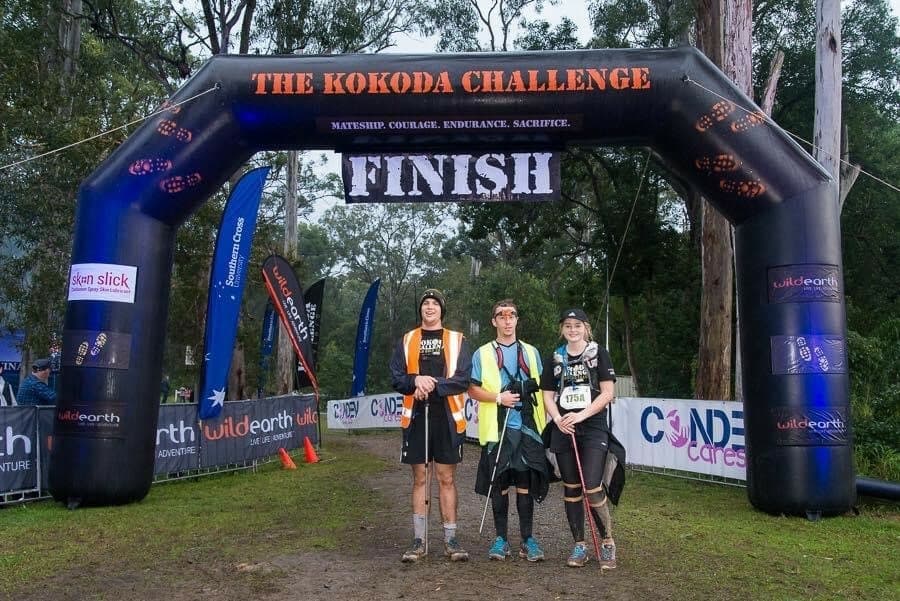
You’ll feel an overwhelming sense of triumph when you conquer the gruelling Kokoda Challenge, proving to yourself just how resilient and determined you really are. Overcoming this physically hard journey is a testament to your strength, both mentally and physically. The satisfaction that comes after enduring such adversity is simply incomparable.
However, remember that triumph isn’t solely about finishing first. It’s about resilience. It’s about grit: maintaining mental fortitude despite physical exhaustion. It’s about camaraderie: working as a team, lending each other support when needed. And it’s about determination: keeping your eyes on the goal and not letting anything deter you.
The Kokoda Challenge isn’t merely an endurance event; it’s a chance for self-discovery and growth beyond what you thought was possible. Completing it leaves an indelible mark on your life story, forever reminding you of what you can achieve with perseverance and tenacity.
So gear up for this extraordinary adventure! Remember, while it may be hard, overcoming it is a triumph like no other!
Key Takeaways: How Hard Is The Kokoda Challenge?
- The Kokoda Challenge, often described as Australia’s toughest event, is a 96-kilometer race across mountainous terrain in the Gold Coast region.
- When you sign up for this challenge, you’re not only pushing your physical and mental limits but also honoring the Australian troops who traversed the treacherous Kokoda Trail during WWII.
- The trail’s distance mirrors that of its namesake in Papua New Guinea’s Central Province, providing a unique adventure steeped in history and resilience.
- This unforgettable experience pushes you beyond boundaries while supporting an amazing cause – raising funds for local charity programs including Kokoda Youth Foundation.
Frequently Asked Questions
What Is the History Behind the Kokoda Challenge and How Does It Honor Australia’s Veterans?
The Kokoda Challenge honours Australia’s veterans by emulating the arduous journey they endured on Papua New Guinea’s Kokoda Track during WWII. It fosters resilience, teamwork, and respect for our past heroes’ sacrifices.
How Does the Kokoda Challenge Support the Local Youth and What Are Some of the Programs They Fund?
The Kokoda Challenge actively supports local youth through programs like the Kokoda Youth Foundation. They offer experiential learning, foster resilience and teamwork, and provide mentorship—creating a real difference in young people’s lives.
Can Individuals From Outside Australia Participate in the Kokoda Challenge?
Yes, you can participate in the Kokoda Challenge from outside Australia. It’s a global event, and they welcome international competitors. Just remember it’s tough—prepare well and consider the physical demands of the challenge.
How Does the Fundraising Aspect of the Kokoda Challenge Work and Where Do the Funds Go?
You raise funds by participating in the Kokoda Challenge. These proceeds support the Kokoda Youth Foundation, which mentors local youth and honours Australia’s veterans. It’s a fulfilling way to challenge yourself while aiding others.
Are There Any Specific Medical Requirements or Health Checks Needed Before Participating in the Kokoda Challenge?
You’re not required to undergo specific medical checks for the Kokoda Challenge. However, it’s strongly recommended that you consult your doctor before participating due to its physically strenuous nature. Always prioritise your health and safety.
